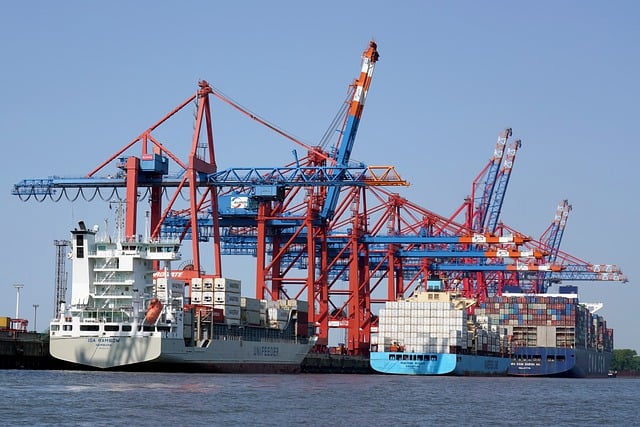
How to Choose a CompliantInternational freightAgency company?
The international freight forwarding market in 2025 will showDigital service upgradesandGreen logistics certificationTwo major trends. When selecting a freight forwarding company, focus on:
- Check whether it holds the International Freight Forwarding Enterprise Filing Form and the Non-Vessel Operating Common Carrier Business License
- Verify its level in the WCO AEO certification system (recommended to select AEO Advanced Certification enterprises)
- Confirm whether it possesses the target marketsCustoms clearancequalifications (such as US Customs bond, EU EORI number)
- Assess its digital capabilities (whether it supports blockchain bills of lading, smartcustoms clearancesystems)
What hidden costs are included in international shipping fees?
The international shipping market in 2025 is affected byThe carbon tariffspolicy changes, leading to significant alterations in fee structures. In addition to basic ocean freight, special attention should be paid to:
- Newly added carbon emission surcharges (CII surcharge, charged based on ship energy efficiency index)
- The destination port devanning fee (D&D fee) may increase by 30% due to the ports automation transformation
- Smart container usage fees (additional $2-5 daily charge for IoT-equipped containers)
- Anti-terrorism security surcharges (applicable to US and Middle East routes)
How to handle customs inspection of goods?
According to the latest 2025 General Administration of Customs regulations, the following coping strategies are recommended:
- Prepare digital documents in advance:
- Blockchain electronic packing lists
- Smart classification pre-ruling certificates
- Select ports with intelligent clearance channels (such as Shanghai Yangshan Port Phase 4, Shenzhen Yantian Port)
- Purchase inspection delay insurance (covering port detention losses caused by AI smart inspections)
How to prevent risks in international trade transportation?
Three - level Description MethodRisk matrix management model:
- Insurance package solutions:
- Basic coverage: Marine All Risks (including war risk clauses)
- Extended coverage: Cyber security insurance (covering supply chain interruptions caused by EDI system failures)
- Use smart monitoring devices:
- Temperature and humidity recorders (mandatory for pharmaceutical products)
- Impact monitoring labels (essential for precision instrument transportation)
How to choose the safest international payment method?
The 2025 SWIFT GPI+ system achievesreal-time payment tracking, it is recommended to choose based on payment terms:
- 30-day payment terms: Letter of credit + blockchain document submission (reducing manual document review errors)
- Cash on delivery: Escrow account + smart contract (automatic release of funds upon GPS delivery confirmation)
- Advance payment: Digital RMB cross-border payment (avoiding exchange rate fluctuation risks)
What details should be noted for special goods export?
Special requirements for key regulated categories in 2025:
- Lithium battery transportation:
- Must use UN38.3 certified fireproof packaging
- Submit CTU Code loading plan
- Food category goods:
- Provide blockchain traceability certificate
- Comply with destination countrys digital labeling regulations (e.g. FDAs new QR Code requirements in the US)
What changes will occur in the freight forwarding industry in the next three years?
Based on FIATA 2025 White Paper predictions:
- Global mutual recognition of electronic certificates of origin to be fully implemented by 2026
- Mandatory use of carbon footprint tracking system by 2027 (impacting freight cost calculation)
- Unmanned customs clearance at major ports to be achieved by 2028 (existing customs declaration models will be completely transformed)


 Follow Customer Service WeChat
Follow Customer Service WeChat